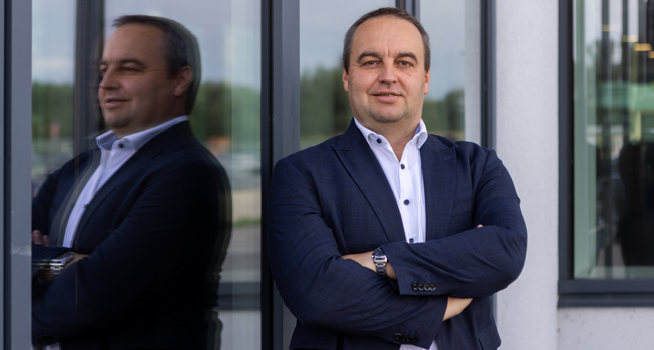The glass industry is facing profound change. Driven by rising cost pressures, increasing demands on product quality and efficiency and a shortage of skilled workers, automation and intelligent production processes are increasingly growing in importance. LiSEC, a leading supplier of machines and software solutions for flat glass processing, is meeting these challenges head on with innovative concepts and custom solutions.
“For years, we’ve been observing a clear trend toward larger glass formats, more complex structures and a higher degree of automation,” said Markus Jandl, Director of Product Management at LiSEC.
Glass lengths of up to 12 metres, high-quality solar control coatings and laminate structures are no longer the exception. At the same time, there is a growing need for transparency in production, as production data is increasingly being used to provide KPIs for management and employees.
The current focus is on conserving resources and increasing efficiency. Optimised material flows and planned maintenance intervals significantly improve the utilisation of existing machine fleets. Thanks to the extensive LiSEC machine and software portfolio and the LongLife program, existing systems are also being continuously upgraded.
Looking into the future, it is apparent that self-learning processes, visual quality controls and AI-supported evaluation tools will minimise operator influence and ensure consistently high product quality. Laser technology is also gaining in importance, and it has already established itself in the area of bird-friendly glass and glass markings in particular.
LiSEC supports its customers with state-of-the-art tools right from the project planning stage: a 3D simulation of the machine fleet, including material flow simulation, enables precise cycle time calculation and the early identification of bottlenecks. Changes in input parameters such as the average glass size or thickness, single or double-shift operation, machine availability, number of glass storage locations, etc. can be adjusted in the material flow simulation tool, and the resulting shift in the respective machine utilisation (bottlenecks) becomes instantly visible.
External influences such as temperature fluctuations in the production hall or changes in the material composition also place high demands on the machines. LiSEC tackles these challenges with intelligent control systems that automatically compensate for such variables and in doing so ensure consistently high quality.






